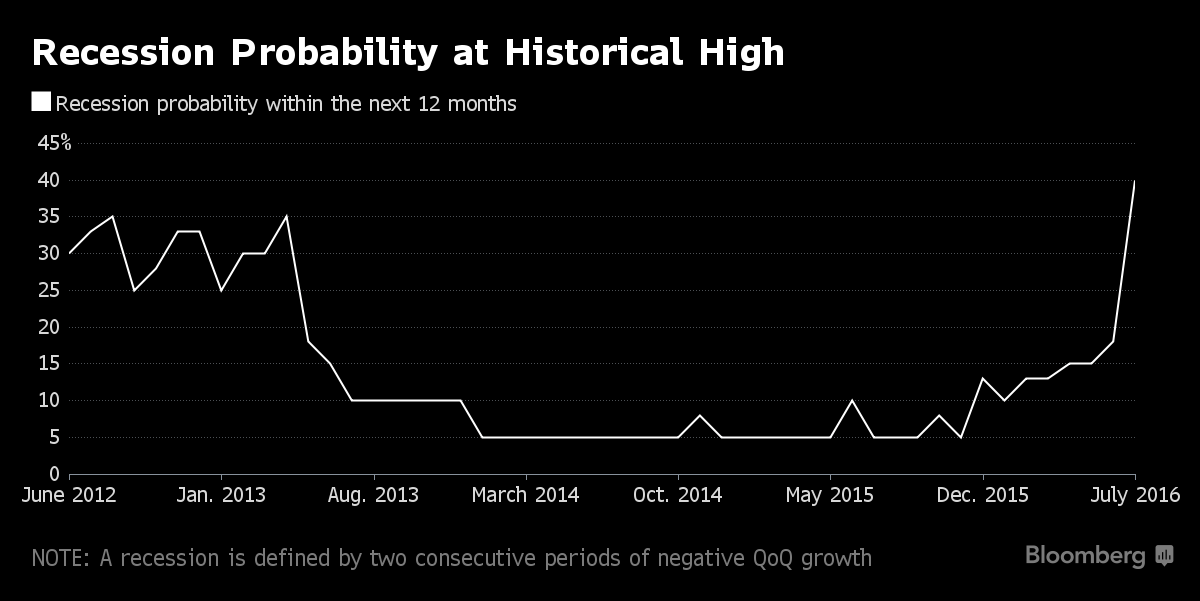Daily Market Update 21st July 2016
OVERNIGHT NEWS
- CRUNCH TIME. In this morning’s economic update the RBNZ indicated that further easing will likely be required. While we expect the RBNZ will ease at the August meeting, the statement was not as dovish as it could have been. The statement tied the OCR outlook more explicitly to the NZD, noting, “the high exchange rate is adding further pressure to the dairy and manufacturing sectors and, together with weak global inflation, is holding down tradable goods inflation. This makes it difficult for the Bank to meet its inflation objective. A decline in the exchange rate is needed”.
- WATCHFUL. The BoE’s July Agents’ Summary of Business Conditions noted watchfulness on the part of firms post Brexit. It noted: “A majority of firms spoken with did not expect a near-term impact from the result on their investment or staff hiring plans. But around a third of contacts thought there would be some negative impact on those plans over the next twelve months. As yet, there was no clear evidence of a sharp general slowing in activity”.
FOREIGN EXCHANGE (INDICATIVE RATES)
| Currency | Last | % Change | Overnight Range |
|---|---|---|---|
| DXY | 97.20 | -0.01% | 96.989 - 97.323 |
| EURUSD | 1.1018 | 0.05% | 1.0982 - 1.103 |
| USDJPY | 107.21 | 1.12% | 105.92 - 107.45 |
| AUDUSD | 0.7472 | -0.35% | 0.7454 - 0.7509 |
| GBPUSD | 1.3254 | 0.02% | 1.3071 - 1.3237 |
Commodities (INDICATIVE RATES)
| Currency | Price USD | % Change | Overnight Range |
|---|---|---|---|
| Gold | 1314.28 | 1.28% | 1313.66 - 1338.4 |
| Silver | 19.32 | 2.44% | 19.3948 - 19.989 |
| Oil (BRENT) | 47.17 | 1.35% | 45.9 - 49.22 |
| Oil (WTI) | 45.72 | 2.19% | 43.69 - 45.7 |
COMMODITIES
Precious Metals: Gold futures fell to a three-week low as gains in equities and a stronger dollar curbed demand for the metal as a store of value. Silver extended its longest run of losses in eight months, and shares of miners slid the most since November. Clearly gold and silver prices are both running out of steam at the moment, with macro-economic shocks such as UK referendum being quickly digested.
Oil: August WTI crude was adding $0.29, or 0.7%, to US$44.94 a barrel after the U.S. government reported a ninth straight week of crude inventory declines that came within expectations.
FOREX NEWS
- The USD strengthened across the board except versus sterling. GBP was bid all session. A better-than-expected labor market report showed the unemployment rate falling below 5.0% and highlighted positive pre-Brexit momentum. Latest gains have followed comments from BoE member Forbes that the BoE needs to see more evidence of Brexit’s negative impact to cut rates. Forbes says this is not a ‘Lehman moment.”
- USDJPY continued to trend higher, with US yields on a tear higher. This grind higher in USDJPY could continue into the BoJ and the 106.85/107.32 region on a weekly closing basis has meaning. Also note Kyodo headlines making rounds – claims that the Japanese government is eyeing a JPY20tn stimulus package. That’s double what some market participants had been expecting.
- EURUSD resilience at 1.1000 did not go unnoticed. Flows may help to explain this recent price action but looking forward to Thursday’s ECB meeting, downside risks remain.
- NZD can’t wait until the RBNZ’s assessment – due in just a few minutes. NZDUSD nor
- AUDNZD have not budged and on the RBNZ’s report, short term risk is likely most concentrated in cross’s downside should it read hawkish.
- USDTRY reached a record high of 3.0973 following the S&P’s decision to downgrade it from BB+/stable to BB/negative and announcement of a new 3m state of emergency. There was no spillover in G10 like recent days but developments from here remain firmly on investors’ radar. Key now: further rating agency decisions and what else President Erdogan’s government decides to do.
Brexit to Spark U.K. Recession, Forecasters Say
The U.K. economy may be heading for its first recession since 2009, with economists slashing their forecasts in the wake of the Brexit vote and now seeing two quarters of contraction this year.
While the 0.1 percent decline in gross domestic product anticipated in each of the third and fourth quarters is modest, it will mark the end of more than three years of unbroken growth. The projections in the Bloomberg survey compare with a 0.6 percent expansion predicted for those periods before the June 23 referendum.
The changed outlook since the U.K. voted to leave the European Union has the Bank of England -- which had been on a slow track toward interest-rate increases -- now contemplating expanding stimulus for the first time since 2012. While the impact is only showing up so far in measures of consumer and business confidence, that could ultimately spill over into key drivers of growth in the coming months, stymieing the economy.
Even with some predicted BOE stimulus, the probability of Britain sliding into its first recession since 2009 stands at 40 percent, up from 18 percent in June, according to the survey, which was conducted after the central bank’s July 14 policy announcement. That’s the highest since Bloomberg started tracking the likelihood in 2012.
“We expect to see a recession around the turn of the year, based on the idea that there will be quite a large uncertainty shock which will lead to corporate retrenchment,” said Nick Kounis, head of macroeconomic research at ABN Amro Bank NV in Amsterdam. BOE policy makers “need to wait for a little bit of evidence but they can’t wait until it has already happened because monetary policy works with a lag.”
Read More at www.bloomberg.com



